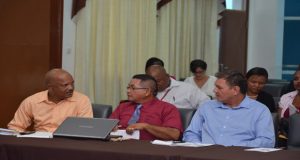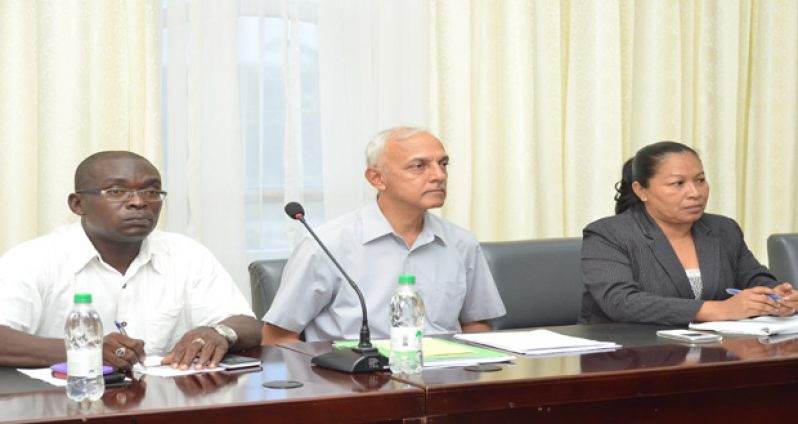THE Ministry of Communities staged its first “appreciative inquiry round table” yesterday, with the aim of developing plans of action for regional development (PARD).PARD is a new initiative which will assist the 10 regional democratic councils (RDCs) in developing, implementing, monitoring and assessing appropriate action-oriented plans for the social and economic advancement of the respective regions.
This will, of course, undo the damage inflicted on Guyana’s ailing local government system by the previous administration.

Communities Minister Ronald Bulkan said PARD is part of a revolutionary process which was stymied by the People’s Progressive Party/Civic (PPP/C) during its terms in office.
He said creation of PARD is a critical step in the revolutionary process in the country’s governance architecture; one which will allow for simultaneous decentralisation and regional empowerment to take place.
He said it started 35 years ago, on August 18, 1980, when the Local Democratic Organs Bill was debated in the National Assembly. The bill, which was led by the then Minister of Economic Development and Cooperatives, the late Desmond Hoyte, determined the legal framework and authority of the local government organs.
Most importantly, the bill, which has been enacted, sought to empower the people of Guyana at the levels of their regions and communities, thereby allowing them to be involved in the decision-making process.
“In the decade following the enactment…the system which was designed to be introduced started to take root in our country, (but) it is unfortunate and regrettable, in my opinion, that that evolution and that progress were arrested, if not reversed, in the past 15 years,” Minister Bulkan said.
However, the Communities Minister made it clear that the David Granger Administration is firmly committed to the process of decentralisation. He explained that regional administration and regional development are a part of the construct of local government. “In fact, it is the backbone of the local government system,” he said.
“The NDCs and municipalities, those 71 existing organs which generally are what are considered to be the ‘local government organs, are really sub-divisions of the parent body, or the regional democratic councils. Our presence here today is a continuation of the journey to give effect to the constitutional provision relating to how our country should be managed.
“What our constitution does not provide for is for the country to be managed by only a single government, that is, central government, but rather by 82 governments, namely one central, 10 regional, six municipalities, and 65 NDCs,” Bulkan told the gathering that includes Minister within the Ministry of Communities, Dawn Hastings-Williams; Permanent Secretary Emil Mc Garrell; regional chairmen, regional executive officers (REO) and councilors, at the Arthur Chung Convention Centre.
Junior Communities Minister Dawn Hastings-Williams said that, for too long, regional administrations have been trying to give satisfaction to residents without having a visionary plan for development. “We had plans, but they were not documented,” she explained. As such, she said, PARD will assist in that process.
In pointing out that Region 10 was selected to execute the pilot project, Hastings-Williams said every region’s plan of action must include solid waste management, climate change, and disaster risk management initiatives.
Principal Regional Development Officer Aretha Henry further explained that the Ministry of Communities recognizes the need for a collective approach for the involvement of all parties.
“We envisage there will be positive change, given the positive and critical inputs that will be made by you, our stakeholders. We’re cognizant of your passion for development and your willingness to contribute towards making a difference,” she added.
In addition to the regional officials, the roundtable was attended by IDEA International, Conservation International, UNESCO, the United Nations Development Programme (UNDP), the University of Guyana, UNICEF and CARILED.
During the seminar, these international and local agencies discussed their strategic planning initiatives, experiences and best practices.
By Svetlana Marshall




.png)









